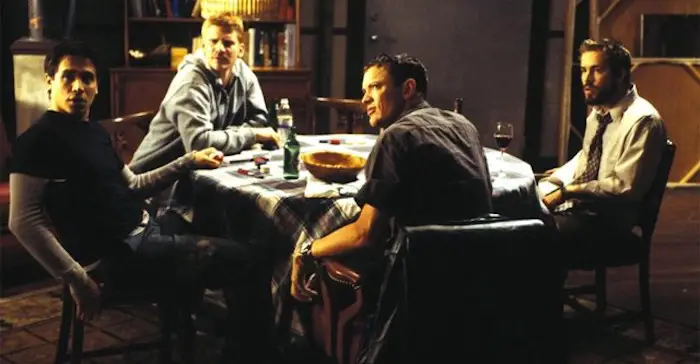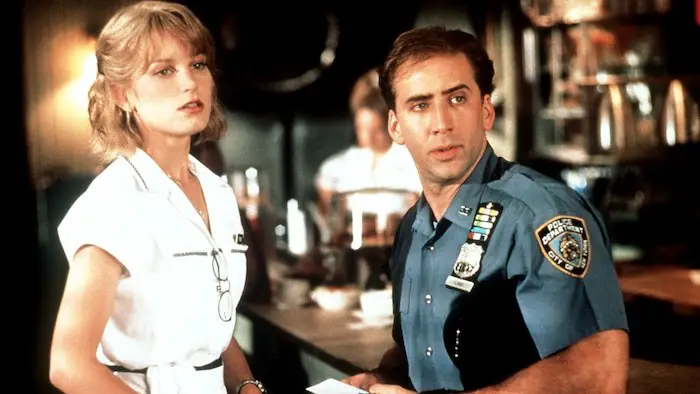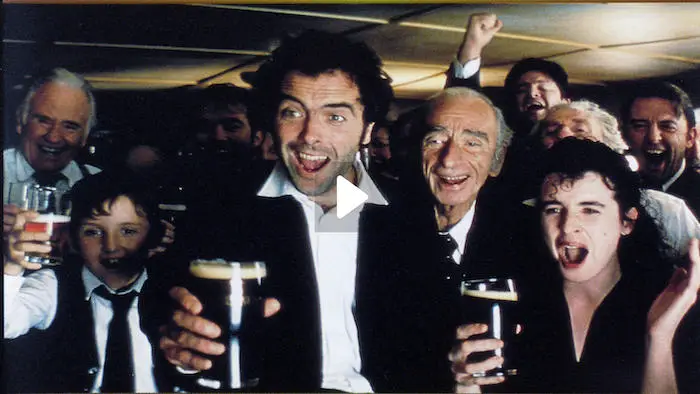
What can real or fictional movie characters teach us about winning the lottery and dealing with it?
Every average person has dreams of winning the lottery, and over the years, the life-changing thrill of this event has proved to be a rich source of material for Hollywood. In dozens of big-budget movies, the lottery and its winners are at the center of the plot, and the winners’ lives change in ways that are dramatic, funny, and romantic.
One thing that stands out in most of these stories, however, is that the win itself isn’t the most important thing, but how it changes the people involved and the lessons they learn from it, be they good or bad.
So, let’s take a look at a few different aspects of what is otherwise considered a momentous occasion and see what we could learn from them in case we ever hit the lotto jackpot.
Thriller: Finder’s Fee

Tepper (Erik Palladino), the protagonist of filmmaker Jeff Probst’s 2001 thriller, finds a wallet while walking along the street. After getting in touch with the wallet’s owner, Avery Phillips (James Earl Jones), Tepper discovers a winning lottery ticket inside the wallet. Tepper’s problem deepens when his poker buddies, including Quigley (Ryan Reynolds) and Fishman (Matthew Lillard), show up for their regularly scheduled game, in which they wager with lottery tickets.
We won’t give away the ending of this dramatic thriller, but just so you know what you’re getting into, the lesson learned here is similar to the old old saying “easy come, easy go,” but with a much darker undertone, the main character ends up losing more than he stood to gain due to the dubious manner in which he obtained the “lucky” ticket.
Romance: It Could Happen to You

The story of this beloved 1994 film is based on genuine events. Ten years before the movie was shot, a New York City police officer ran out of money at a café and was unable to tip his server. Instead, he proposed that they split the cost of a lottery ticket and choose three numbers each. If the ticket won, they’d split the prize money evenly.
This really occurred; the officer and the waiter both received $2 million of the $4 million jackpot won by the cop’s winning ticket. It seemed inevitable that a great film would be made on such an intriguing topic.
The romantic comedy It Could Happen to You, starring Nicholas Cage as the officer and Bridget Fonda as the waitress, is about more than just hitting the jackpot; the film’s central message is that we all receive what we deserve in the end and that positive behavior will be somehow rewarded by the universe.
Comedy: Waking Ned Devine

The first scene in this excellent comedy from 1998 begins with the announcement that a resident of the small Irish village of Tullymore has won the National Lottery. Locals have had such a tight-knit community for so long that they stand and wonder who the winner might be and jump to conclusions about anybody who acts out of character.
There are no clues, so a town-wide dinner (only 52 people live there) is prepared in the hopes that the winner will be revealed. Unfortunately, that wasn’t the case. One individual, however, is missing from the feast: Ned Devine.
When Jackie O’Shea (Ian Bannen) and Michael O’Sullivan (David Kelly) rush to Ned’s house, they discover his lifeless body, with the winning ticket clutched in his hand, most likely a result of the incredible surprise. They are shocked to find out that instead of a few hundred thousand pounds, as they had anticipated, the pot was roughly seven million pounds. Due to the unfortunate passing of Ned Devine, the prize money will be carried over to next week’s drawing.
Jackie and Michael devise a plan to have Michael pose as Ned in order to fool the Dublin official, who has never seen Ned before. Because the plan will require the participation of everyone in town, Jackie and Michael organize for their friends and neighbors to join in the prank and divide the proceeds. And this is the lesson we can take away from the film: success is measured not by how much money you gain, but by who you share it with and how much good you do for others.
Documentary: Millions (A Lottery Story) by Paul La Blac

The lives of six lottery winners are examined in the 2006 documentary Millions (a lottery story), which demonstrates the profound impact that winning the lottery can have on an ordinary individual. Millions follow people’s lives as they amass wealth and fame across the United States, from the farmlands of the Midwest to the hurricane-ravaged retirement homes of South Florida. The film delves into topics such as celebrity, aging, the struggles of small farmers, and the place of religion in modern life.
While this casino website estimates the odds of winning the Mega Millions or Powerball jackpot as one in 300 million, some of the subjects of the documentary Millions: A Lottery Story wished the odds had been even higher. Roger Ebert’s quote, “Money can’t make you happy, but it can give you a lot more to spend,” sums up the lesson we stand to learn from this movie quite well.
Conclusion
Winning the lottery in general can be an awesome experience and alter your life for the better; however, if there’s one lesson we can learn from all the above movies, it’s that it very much matters how you go about managing your winnings. If you spend money without thought or with selfish or ill intentions, you’ll usually end up right back where you started, if not worse off. On the other hand, if you plan out what to do with your winnings, like investing in yourself or in your community, you might just find yourself even richer for it.
While winning the lottery might seem like an impossible dream, the truth of the matter is that winners pop up all the time, from all regions of the world and from all walks of life, so keep the hope alive and one day someone might just make a movie about your win. It’s up to you whether this will be an inspiring or cautionary tale.





